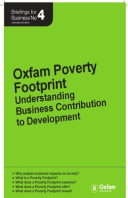LexisNexis Analytics tracks emerging and innovative sustainability approaches and the local and international diffusion of various environmental and social indicators to help companies benchmark themselves to their competitors and identify opportunities to improve their commitment to sustainability.
While sustainability issues have progressively become mainstream preoccupations in the past years, many indicators and best practices programs are still only in pilot testing phases at company or institutional level throughout the world, and their integration in business strategy and reporting is very far from generalization.
This post sums ups several “sustainability footprint” initiatives which were launched in the past 10+ years, aiming to accelerate the business adoption of measurement, management, disclosure and environmental & social impact improvement practices.
The Carbon Disclosure Project (CDP) focuses since 2000 on the reporting and management of carbon emissions and has extended its activities in 2009 to water issues with the CDP Water Disclosure project.
The Forest Footprint Disclosure project was initiated in 2008 by the Global Canopy Foundation and asks companies to disclose how they manage their “forest footprint” based on exposure to 5 commodities which can be sourced from recently deforested land (soy, palm oil, timber, cattle products and biofuels).
The Plastic Disclosure Project was launched in 2010 and is operared by the Ocean Recovery Alliance and encourages companies to report their overall plastic use.
And on the social side ? Oxfam released in 2009 a Poverty Footprint methodology for companies to assess and understand their effects on society and on people living in poverty. It analyses poverty in five company impact areas (macroeconomy, value chains, local environmental practices, product development and marketing, policies and institutions) through five dimensions of poverty (livelihoods, health and well-being, diversity and gender equality, empowerment, security and stability). Using this methodology, Coca-Cola and SAB Miller examined the impacts of their value chains in Zambia and El Salvador and communicated the results of their study in a report released earlier this year.
Fabrice Landousy
Chef de projet, Ph D
LexisNexis Analytics
LexisNexis Analytics
Image sources :
http://ahharsfnews.com/2011/04/17/carbon-disclosure-project-goes-straight-to-the-source-source-44-llc-of-solana-beach-ca
http://www.forestdisclosure.com/
http://www.trademarkia.com/pdp-plastic-disclosure-project-85249869.html
http://policy-practice.oxfam.org.uk/publications/oxfam-poverty-footprint-understanding-business-contribution-to-development-114043






Aucun commentaire:
Enregistrer un commentaire